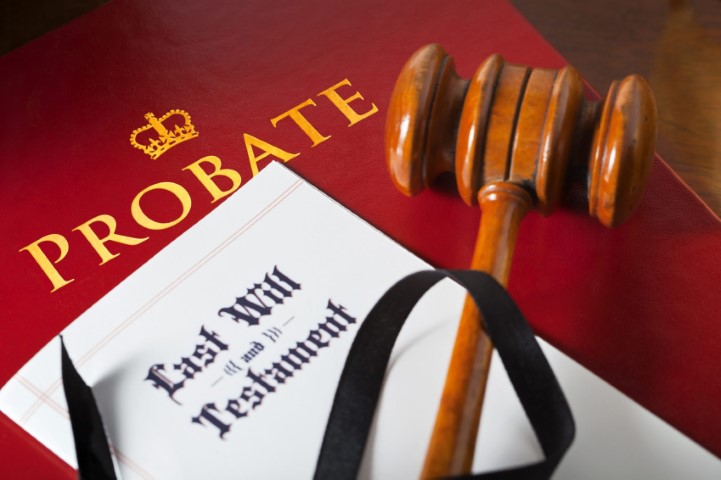August 15th 2019
Generally speaking, when you sell your home, the capital gain that may result, is not taxable. You do have to report the disposal of the property on your personal income tax return for the year the sale occurred, but  you can also file an election in that year’s return that exempts the property from income tax because it is your principal residence.
you can also file an election in that year’s return that exempts the property from income tax because it is your principal residence.
If a change in use of the property occurs, from a rental property to a principal residence, or from a principal residence to a rental property, you have to report that change in use in your personal tax return in the year that the change occurred. The change in use from a rental property to a principal residence may result in a taxable capital gain at the time of the change, whereas, capital gain upon the change in use from a principal residence to a rental property may not result in a taxable transaction if the principal residence election is made. There are elections that can be filed that defer the deemed dispositions arising on these changes of use.
You are only allowed to have one principal residence in a year. If you own two properties, such as a cottage and a house, and you live in each one for a portion of each year, at the time of selling one of those properties you have to determine whether you want to elect to use your principal residence exemption. For  example, you may decide to sell your home but the potential capital gain on the disposal of the cottage may be greater than the capital gain on the disposal of your home. You may want to consider not using the principal residence election on your home for those years that the ownership of the house overlaps the ownership of the cottage. To include numbers in the analysis, the correct analysis is to look at gain per year of ownership. For example, if you owned a house for the last 10 years and have a $100,000 gain, that’s a gain of $10,000 per year. However, if you also owned cottage for the last 5 years and have a gain of $75,000 or $15,000 per year, you might rather save the principal residence exemption for the cottage, as it would give you more bang for the buck over the last 5 years.
example, you may decide to sell your home but the potential capital gain on the disposal of the cottage may be greater than the capital gain on the disposal of your home. You may want to consider not using the principal residence election on your home for those years that the ownership of the house overlaps the ownership of the cottage. To include numbers in the analysis, the correct analysis is to look at gain per year of ownership. For example, if you owned a house for the last 10 years and have a $100,000 gain, that’s a gain of $10,000 per year. However, if you also owned cottage for the last 5 years and have a gain of $75,000 or $15,000 per year, you might rather save the principal residence exemption for the cottage, as it would give you more bang for the buck over the last 5 years.
When someone passes away the income tax rules deem that the deceased has disposed of all of their property at its fair market value on the date of death. If there is a surviving spouse, that tax can be deferred on the assets inherited by the surviving spouse. With respect to real estate, if there is no surviving spouse, the real estate is considered disposed of at the time of death and the above tax rules apply.
In order to avoid some of these taxes and estate administration fees (probate fees), mom or dad may choose to put the children on title to the property. If they choose to do that, they are considered to have  disposed of a proportionate share of their house at the time the title changes. For example, if mom’s three children have their names put on title, mom is considered to have disposed of 3/4 of her house. That disposal may be tax free if it is her principal residence, but she still has to report that disposal on her personal tax return in the year of change. The cost to the children is the fair value on the date when their names were put on title. When mom passes, she is deemed to have disposed of her remaining interest on the date of her death at the value on her death. When the house is eventually sold the cost of the house to the children is 3/4 of the fair value on the date of the original transfer plus the fair value of the quarter interest on mom’s passing. The capital gain is calculated on the difference between the selling price and that calculated cost. If this is a principal residence, no advantage was gained by putting the children’s name on title, in fact, there may be an income tax cost since mom will only be able to claim her principal residence exemption on the portion of the residence that she still owns. However, there may be only small savings when you compare land transfer tax at the time of the change of title versus probate fees because there is no land transfer tax on a gift of property for no consideration.
disposed of a proportionate share of their house at the time the title changes. For example, if mom’s three children have their names put on title, mom is considered to have disposed of 3/4 of her house. That disposal may be tax free if it is her principal residence, but she still has to report that disposal on her personal tax return in the year of change. The cost to the children is the fair value on the date when their names were put on title. When mom passes, she is deemed to have disposed of her remaining interest on the date of her death at the value on her death. When the house is eventually sold the cost of the house to the children is 3/4 of the fair value on the date of the original transfer plus the fair value of the quarter interest on mom’s passing. The capital gain is calculated on the difference between the selling price and that calculated cost. If this is a principal residence, no advantage was gained by putting the children’s name on title, in fact, there may be an income tax cost since mom will only be able to claim her principal residence exemption on the portion of the residence that she still owns. However, there may be only small savings when you compare land transfer tax at the time of the change of title versus probate fees because there is no land transfer tax on a gift of property for no consideration.
If the property is not a principal residence, the comparison is paying a portion of the taxes earlier and the balance on the final disposition of the property versus all at the time of death.
Other things to consider when selling real estate:
The tax effect on the disposal of a property can change with each fact situation. If the facts are not straight forward and simple, professional tax and legal advice should be sought.
JohnTeibert, CPA, CA Crawford Smith & Swallow Chartered Professional Accountants LLP john@crawfordss.com 905-937-2100